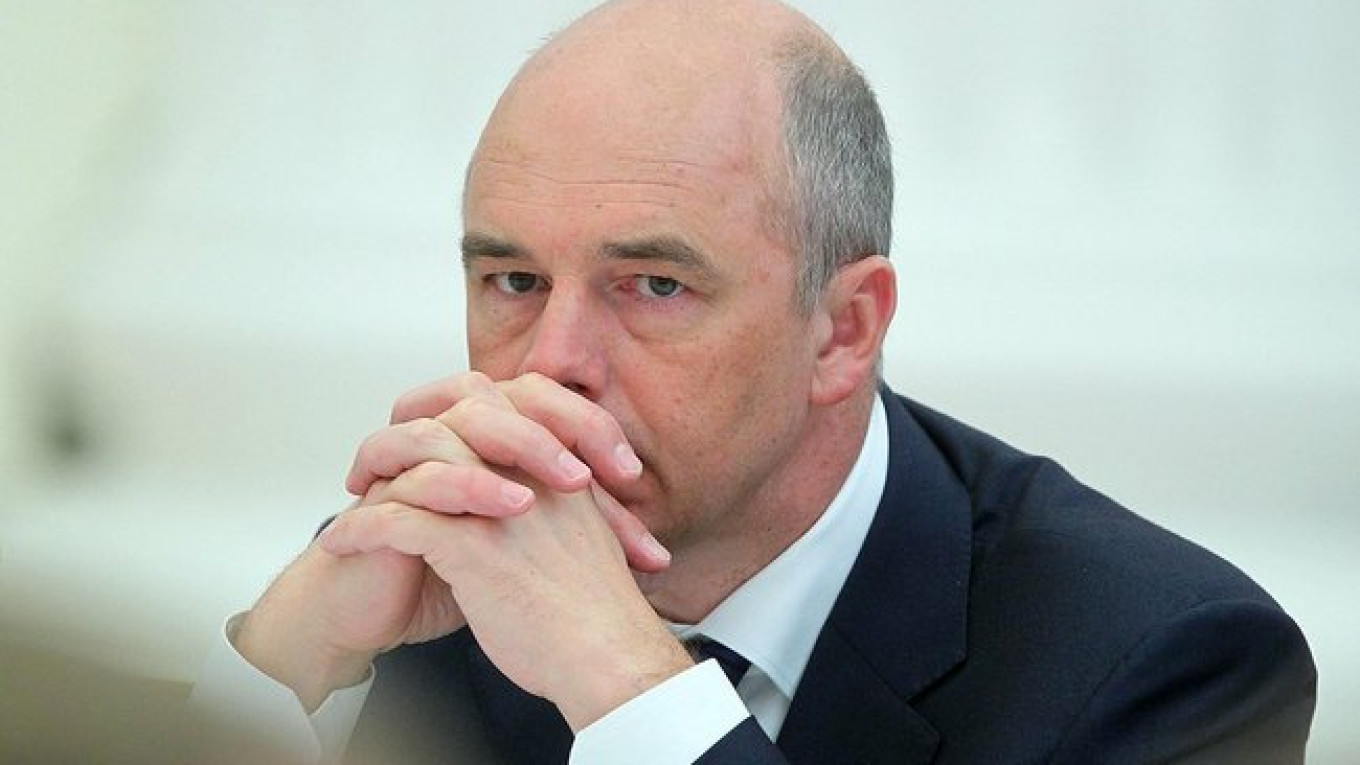Russian Finance Minister Anton Siluanov warned on Wednesday the country would face no choice but to rein in public spending over the next few years, highlighting how Russia is still in deep economic trouble even if it has dodged an immediate meltdown.
Russia was tipped into crisis by last year's sharp drop in oil prices, compounded by Western sanctions for the annexation of Crimea and alleged support for rebels in eastern Ukraine, causing sharp falls in the value of the ruble currency.
Sentiment has improved in the last few months, helped by a fragile peace deal in Ukraine and a pick-up in the oil price. As a result, the ruble rose over 20 percent against the dollar this year, while bonds and stocks have rallied.
But predictions that Russia is coming out of economic crisis are premature. A dramatic collapse may have been averted, but instead the patient has been consigned to a long period of being chronically unwell.
The underlying problem is that prices for oil — Russia's main source of revenue — are still substantially below the levels on which the government had based its budget projections for the next three years.
The problem is exacerbated by sanctions that have effectively cut Russia off from international debt markets, while the pool of credit available domestically is shallow.
So far Russia has been dipping into its Reserve Fund, but it is depleting fast. Worth about $75 billion now, Finance Ministry projections indicate most of it will be spent over the next two years.
Speaking after a meeting between government ministers and President Vladimir Putin to talk about the budget, Siluanov described a situation where Russia's public finances were running out of choices.
"There's no question, we cannot pretend that nothing is going on," he told reporters. "It is clear that we will have to review our previous decisions [and] tweak some [spending] programs."
In a sign of the budgetary challenges Russia faces, the Finance Ministry has again revised up its forecasts for expenditures and borrowings over the coming years.
Siluanov said that he now expects a deficit of no more than 2.4 percent of GDP in 2016 — double a projection made two months ago — and a balanced budget by 2018 rather than 2017 as previously targeted. This year the deficit is projected at 3.4 percent, slightly below a previous 3.7 percent projection.
But even the new, softer, targets will require painful budget cuts that will be hard to deliver without a major rethink of spending items dear to Putin's heart.
So far no decisions have been made on what cuts to make and where they will fall.
Putin has ordered that spending on defense and national security — which together account for about a third of the federal budget — should not be touched.
Rebuilding the military is a central part of his appeal to voters, many of whom long for the days when the massive Soviet armed forces projected Russian might around the world.
"[Russia] cannot possibly manage such a high rate of military spending now," Sergei Guriev, a former rector of the New Economic School in Moscow, said in a commentary published last week.
Putin has also said that pensions should rise in line with inflation for this year, a major drain in a country where inflation is in double digits and government top-ups to the pension fund account for about a quarter of the federal budget.
Those commitments could leave it facing a crunch in 2017, when the Reserve Fund is forecast to be at its most depleted.
Without any meaningful spending cuts, the only option could be for Russia to return to international debt markets to borrow its way out of the problem, and for that it would need relief from the Western sanctions.
That imperative creates a strong incentive for Russia to move towards a more lasting settlement in Ukraine, Christopher Granville, managing director of London-based consultancy Trusted Sources, wrote in a report.
A Message from The Moscow Times:
Dear readers,
We are facing unprecedented challenges. Russia's Prosecutor General's Office has designated The Moscow Times as an "undesirable" organization, criminalizing our work and putting our staff at risk of prosecution. This follows our earlier unjust labeling as a "foreign agent."
These actions are direct attempts to silence independent journalism in Russia. The authorities claim our work "discredits the decisions of the Russian leadership." We see things differently: we strive to provide accurate, unbiased reporting on Russia.
We, the journalists of The Moscow Times, refuse to be silenced. But to continue our work, we need your help.
Your support, no matter how small, makes a world of difference. If you can, please support us monthly starting from just $2. It's quick to set up, and every contribution makes a significant impact.
By supporting The Moscow Times, you're defending open, independent journalism in the face of repression. Thank you for standing with us.
Remind me later.


